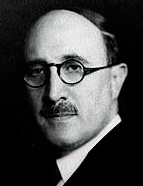

During this period, Spanish historiography was experiencing a Europeanist reorientation, largely influenced by the regenerationism movement that emerged after 1898. Following the end of the Cuban War of Independence, Spain entered a period of introspection marked by undertones of disaster and decline. Intellectuals from the Centro de Estudios Históricos took it upon themselves to help restore the country’s morale. To promote this recovery, they sought the "intra-history of the nation"; that is, the unique elements that distinguished it from other nations, lay at the roots of its formation, and defined its identity. By locating and analysing documents preserved in archives and libraries, as well as preserved texts and orally transmitted novels, they defined the origins and early stages of an original and distinct culture that had developed and evolved alongside other European cultures. They employed the scientific methodologies established by the international community to highlight what made the Spanish nation distinct from others and to valorise it. As a result, following models developed in other countries during the 1800s to construct Western national histories, they delved into the history of institutions and the evolution of law in the centuries following the disintegration of the Roman Empire. They identified this period, marked by Europe’s geopolitical fragmentation, as the phase in which the origins of contemporary nations could be traced. From the outset, CSA's work was shaped by this approach, studying medieval historical and juridical themes through German and French methodologies. However, he grounded his research in documents and data that highlighted the distinctiveness of Spanish history, aiming to identify what made it unique.
In 1926, CSA joined the Real Academia de la Historia with a lecture titled "Estampas de la vida en León durante el siglo X". Between 1927 and 1928, he lived in Vienna and participated in a seminar led by Professor Alfons Dopsch (1868-1953) at the Austrian Institute for Historical Research (Institut für Österreichische Geschichtsforschung), which had a profound influence on his historiographical views. In addition to focusing on the history of institutions, Dopsch rejected strict periodisation and instead advocated for understanding history as a series of gradual changes and progressive developments. These ideas permeated CSA's work, along with a teleological view of history — as magistra vitae [life's teacher] that explains the present — and of life itself, topics that remained present throughout his career. At the same time, a strict methodological rigour characterised his entire career, prompting him to question all theories — both his own and those of others — through constant reading and re-reading of sources, thorough analysis of documents, and a robust critical mindset. A substantial part of his work is dedicated to the detailed review and reasoned critique of the theoretical proposals of other historians, both past and contemporary. His entire body of work was founded on his own ideas, which he frequently tested, seeking to establish an explanatory framework for the history of Spain in which medieval institutions had a central place.
This work is financed by national funds through FCT - Foundation for Science and Technology, I.P, in the scope of the projects UIDB/04311/2020 and UIDP/04311/2020.
